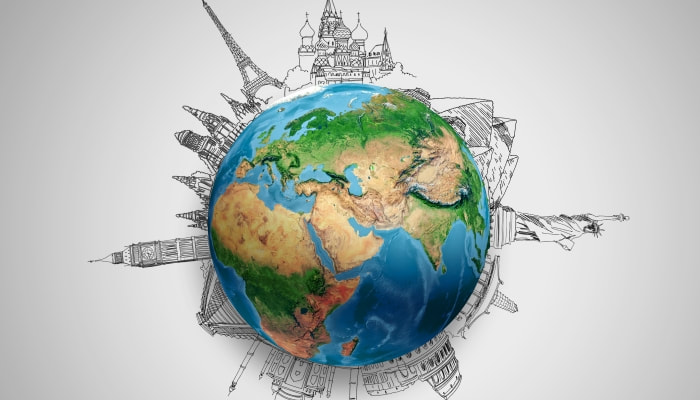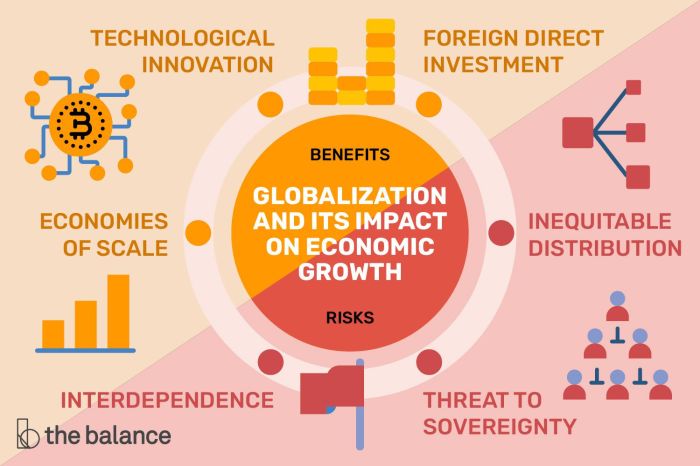How has globalization changed culture since 1900 – Since the dawn of the 20th century, globalization has profoundly transformed the cultural landscape worldwide. The advent of mass media, increased global travel, and the spread of Western culture have significantly influenced local traditions, fostering both cultural exchange and assimilation.
This essay will delve into the multifaceted ways in which globalization has reshaped culture since 1900.
The rise of mass media and communication technologies, such as the telegraph, telephone, and radio, facilitated the rapid dissemination of ideas and cultural exchange. Newspapers, magazines, and film played a pivotal role in shaping global cultural perspectives, exposing people to diverse viewpoints and artistic expressions.
The Rise of Mass Media and Communication
The development of technologies like the telegraph, telephone, and radio in the early 20th century revolutionized communication and facilitated the spread of ideas and cultural exchange across vast distances. These technologies enabled the rapid transmission of news, information, and cultural content, breaking down geographical barriers and connecting people from different regions.Newspapers,
magazines, and film also played a significant role in shaping global cultural perspectives. Newspapers and magazines disseminated information and ideas to a wider audience, fostering a sense of shared knowledge and understanding. Film, particularly through Hollywood’s global reach, introduced new cultural narratives, values, and lifestyles to audiences worldwide, influencing tastes and aspirations.
Increased Global Travel and Migration

Improved transportation systems and reduced travel costs in the 20th century led to a significant increase in global travel and migration. People from different regions moved across borders in search of economic opportunities, education, or political asylum. This movement facilitated cultural exchanges and assimilation as people from different backgrounds interacted and shared their customs, beliefs, and practices.Migrant
communities often established their own cultural enclaves in new countries, preserving their traditions and languages while also absorbing elements of the host culture. This cultural exchange enriched both the migrant communities and the societies they joined, creating a tapestry of diverse cultural expressions.
The Spread of Western Culture

European colonialism and the expansion of Western powers had a profound impact on the cultural landscape of the world. European values, languages, and customs were imposed on colonized territories, often leading to the suppression of local cultures. However, Western influence also introduced new ideas, technologies, and educational systems, which in some cases contributed to modernization and economic development.The
spread of Western culture was not a one-way process. Local cultures often resisted and adapted Western influences, creating unique cultural blends. This process of cultural hybridization resulted in the emergence of new cultural expressions that combined elements from both Western and non-Western traditions.
The Rise of International Organizations
The establishment of international organizations such as the United Nations and the World Trade Organization played a crucial role in promoting cultural understanding and cooperation. These organizations provided platforms for dialogue and collaboration among nations, facilitating cultural exchanges and fostering a sense of global community.UNESCO,
in particular, has been instrumental in preserving and promoting cultural heritage around the world. Through its programs and initiatives, UNESCO has helped to raise awareness of the importance of cultural diversity and has supported efforts to safeguard endangered languages, traditions, and artistic expressions.
The Impact on Local Traditions and Practices: How Has Globalization Changed Culture Since 1900
Globalization has had a complex impact on local traditions and practices. On the one hand, it has led to the spread of global cultural trends and the homogenization of certain aspects of culture. On the other hand, it has also sparked a revival of interest in local traditions and a desire to preserve cultural heritage.In
some cases, globalization has threatened local traditions by introducing new cultural norms and values. However, it has also provided opportunities for local cultures to adapt and evolve, incorporating elements of global culture while retaining their unique identities.
The Emergence of Global Culture

As a result of globalization, shared cultural elements have emerged, creating a sense of global culture. These elements include common values, beliefs, and practices that transcend national and cultural boundaries. Technology, media, and popular culture have been instrumental in shaping this global culture, disseminating ideas, images, and experiences worldwide.The
emergence of global culture does not mean the disappearance of local cultures. Rather, it represents a complex interplay between local and global influences, where local traditions are both influenced by and contribute to the development of a shared cultural landscape.
General Inquiries
How has globalization influenced local customs and traditions?
Globalization has both preserved and challenged local customs and traditions. While increased connectivity has facilitated the sharing of cultural practices, it has also led to the adoption of globalized norms and values.
What role have international organizations played in promoting cultural understanding?
Organizations like the United Nations and the World Trade Organization have played a significant role in fostering cultural understanding and cooperation. They have facilitated cultural exchanges, promoted dialogue, and supported initiatives aimed at preserving cultural heritage.